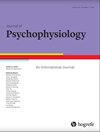创伤暴露类型影响神经对错误的反应
IF 0.9
4区 心理学
Q4 NEUROSCIENCES
引用次数: 1
摘要
摘要研究表明,有创伤暴露史的个体对威胁表现出异常的反应,尽管先前研究的发现模式并不一致。至少有两个因素可能导致先前的差异发现:(1)指数创伤事件的类型和(2)威胁范式的类型。因此,本研究旨在探讨创伤类型对威胁敏感性的特定心理生理指标-错误否定性(Ne)的影响,也称为错误相关否定性(ERN)。年轻人被分为三组:有人际创伤史(即性侵犯、身体攻击或直系家庭暴力);N = 30),非人际创伤的终生史(如事故、自然灾害;N = 30),或终生无创伤史(N = 64)。所有参与者都完成了一个经过验证的侧翼任务,该任务旨在在连续脑电图(EEG)数据收集期间引发Ne/ERN。结果表明,与其他两组相比,非人际创伤暴露个体的Ne/ERN振幅降低(两者之间没有差异)。总的来说,这些发现强调了创伤类型和理论的重要性,表明不同形式的创伤可能导致不同的神经生物学特征。这些发现也增加了越来越多的文献表明,非人际创伤可能与迟钝的威胁敏感性和自我监控缺陷有关。本文章由计算机程序翻译,如有差异,请以英文原文为准。
Type of Trauma Exposure Impacts Neural Reactivity to Errors
Abstract. Studies suggest that individuals with a history of trauma exposure display abnormal reactivity to threat, though the pattern of findings across prior studies has been inconsistent. At least two factors likely contribute to previous discrepant findings: (1) the type of index trauma event and (2) the type of threat paradigm. Accordingly, the current study aimed to examine the impact of trauma type on a specific psychophysiological index of threat sensitivity – error negativity (Ne), also described as error-related negativity (ERN). Young adults were classified into three groups: lifetime history of interpersonal trauma (i.e., sexual assault, physical assault, or immediate family violence; n = 30), lifetime history of a non-interpersonal trauma (e.g., accidents, natural disasters; n = 30), or no lifetime history of trauma ( n = 64). All participants completed a well-validated flanker task designed to elicit the Ne/ERN during continuous electroencephalographic (EEG) data collection. Results indicated that individuals with non-interpersonal trauma exposure displayed reduced Ne/ERN amplitude compared with the other two groups (who did not differ from each other). Broadly, these findings highlight the importance of trauma type and theory suggesting different forms of trauma may result in different neurobiological profiles. These findings also add to a growing literature indicating that non-interpersonal traumas may be uniquely associated with blunted threat sensitivity and deficiencies in self-monitoring.
求助全文
通过发布文献求助,成功后即可免费获取论文全文。
去求助
来源期刊

Journal of Psychophysiology
医学-神经科学
CiteScore
2.60
自引率
7.70%
发文量
25
审稿时长
>12 weeks
期刊介绍:
The Journal of Psychophysiology is an international periodical that presents original research in all fields employing psychophysiological measures on human subjects. Contributions are published from psychology, physiology, clinical psychology, psychiatry, neurosciences, and pharmacology. Communications on new psychophysiological methods are presented as well. Space is also allocated for letters to the editor and book reviews. Occasional special issues are devoted to important current issues in psychophysiology.
 求助内容:
求助内容: 应助结果提醒方式:
应助结果提醒方式:


